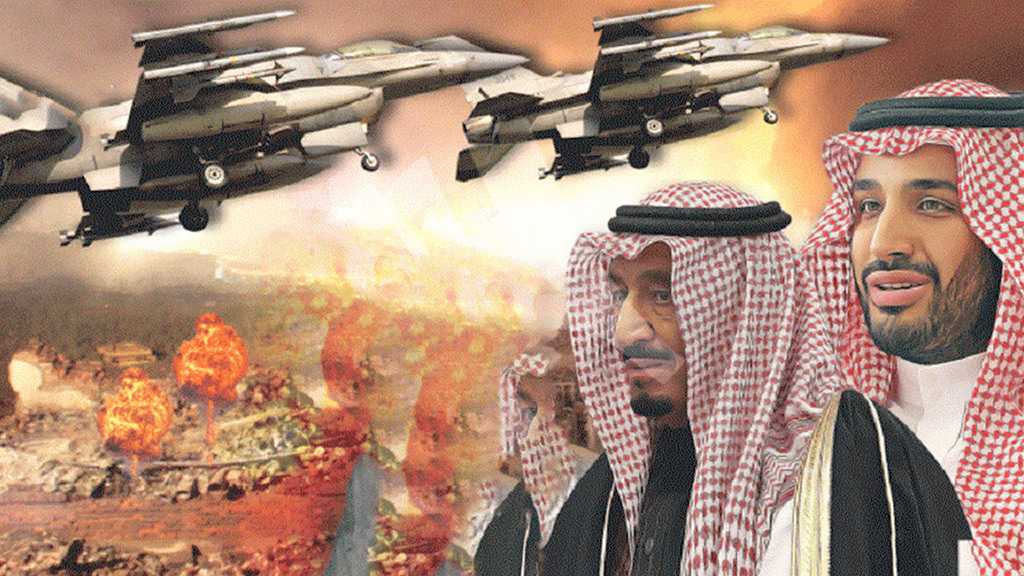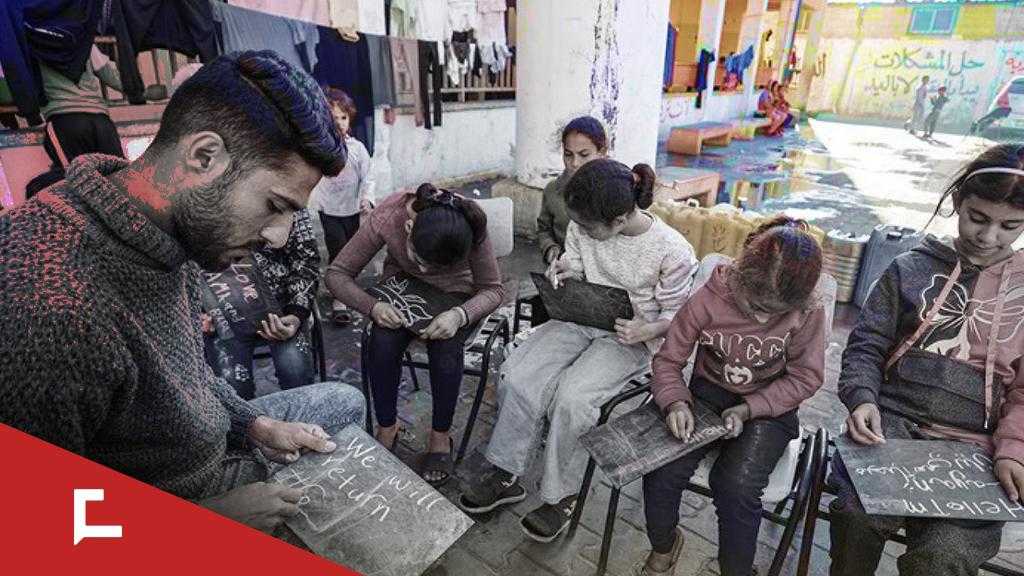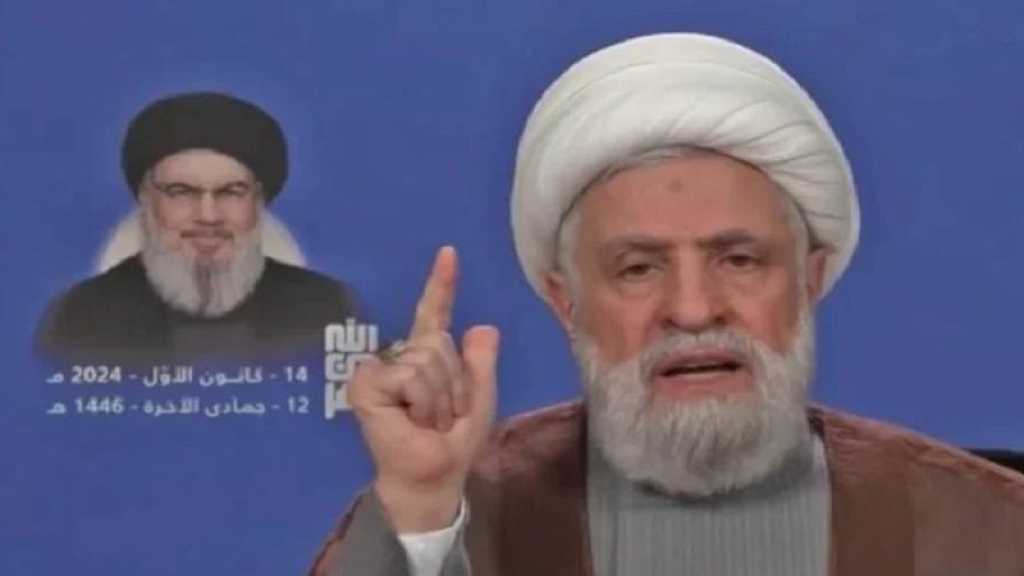The House of Saud Struggles to Normalize Ties with “Israel” As It Sinks in the Yemeni Swamp

By Staff
The father and son relationship between Saudi King Salman and his son the Crown Prince – Mohammed bin Salman [MBS] – is at crossroads regarding the methods in which normalization with the apartheid “Israeli” entity would occur; though the sand kingdom is over its head regarding the consequences of the brutal war it waged on Yemen.
MBS is interested in a normalization with the entity, while King Salman likes the so-called “Arab Peace Initiative”, but the war in Yemen and threats to the Crown Prince at home are keeping them busy.
In a rare speech this week, Salman said Saudi Arabia still adheres to the so-called “Arab Peace Initiative”, which conditions normalization on an “Israeli” withdrawal to the 1967 lines and the establishment of a Palestinian state. But MBS wants to speed up normalization as part of his strategic and, above all, economic vision.
In his speech, King Salman focused on regional affairs: Iran and the “Israeli”-Palestinian so-called “peace” process – though he never mentioned the “Israeli’ entity’s normalization with the United Arab Emirates and Bahrain.
Was he trying to prove that he’s still in control of his kingdom and that he still sets foreign policy? Is this an intergenerational dispute, pitting the son’s project against the father’s traditional attitudes?
Saudi Arabia’s decision-making processes are enigmatic, as are relationships among members of the royal family and the kingdom’s domestic and foreign-policy considerations.
Yet, Saudi-“Israeli” normalization – which Jared Kushner, US President Donald Trump’s son-in-law and adviser announced will be happening very soon – seemed to be delayed.
Moreover, it’s not clear whether the delay is a matter of principle – that is, until a Palestinian state arises, or at least until “Israeli”-Palestinian negotiations resume – as King Salman said, or only a temporary one, until MBS manages to persuade him.
The difference in the two royals’ positions also raises another question. Saudi Arabia has provided an umbrella for the latest “peace” deals. Not only did it not condemn them, it praised the UAE and Bahrain for taking this step, which was coordinated with MBS, and opened its airspace to flights to and from the “Israeli” entity.
Not to mention, the public opinion in Saudi Arabia for a historic turnabout in the sand kingdom’s relationship with the “Israeli” entity is being paved.
Though, one issue stays unresolved.
It’s clear that Riyadh need to make peace with Washington, either before or as part of a deal with the “Israeli” entity. The main dispute between them is the war in Yemen, which began after King Salman was crowned in 2015.
In this war, the Saudi and UAE armies have treated Yemen’s civilian population brutally and used American weapons to do so. More than 125,000 people have been martyred, including 14,000 who were killed in deliberate attacks on civilian targets.
Hence, the Saudis’ aggression on Yemen has reappeared on the Washington agenda due to a partially classified report on US involvement in the conflict written by the State Department’s inspector general. The document’s unclassified sections, which were reported in the American media, reveal the magnitude of war crimes by Saudi and Emirati forces and their mercenaries, to the point that the US faces a risk of prosecution at the International Criminal Court.
Oona Hathaway, a former Department of Defense lawyer and now a Yale professor, told The New York Times: “If I were in the State Department, I would be freaking out about my potential for liability. I think anyone who’s involved in this program should get themselves a lawyer.”
Public and international pressure led Trump’s predecessor, Barack Obama, to freeze an arms deal with Riyadh in 2016 as a way of pressuring the Saudis to change their tactics in Yemen. One year later, Trump reversed that decision and opened the floodgates of US arms sales to the Saudis.
To Trump, Saudi Arabia, he said, has “nothing but cash,” which it uses to buy American services, protection and other goods. Regarding the slaughter of civilians in Yemen, he said the Saudis “don’t know how to use” American weapons.
Congress didn’t believe Trump’s explanations, and in April 2019, it passed a bipartisan resolution calling for an end to US military involvement in Yemen. Trump vetoed the resolution and circumvented the ban on arms sales to Riyadh by declaring a state of emergency over Iran, which allowed him to continue complying with Saudi requests.
The US government did budget $750 million to train Saudi soldiers and pilots on fighting in populated areas, with the goal of reducing harm to civilians. It also gave the Saudis a list of 33,000 targets they shouldn’t strike. But the Saudis don’t seem to have been overly impressed, and violations continue to this day.
Unlike Saudi Arabia, the UAE understood the dangers of its involvement in the war in Yemen and withdrew its forces, overcoming the ban on selling it F-35 fighter jets and other arms. It then overcame the “Israeli” obstacle by signing this month’s so-called “peace” deal.
MBS, who started the war in Yemen along with his father, is still wallowing in the Yemeni swamp that has complicated his relationship with the US. And that’s on top of his resounding failures in managing the Kingdom’s foreign policy, like forcing then-Lebanese Prime Minister Saad Hariri to resign, imposing a blockade on Qatar, waging an unsuccessful oil war with Russia that sent prices plummeting and abandoning the Palestinian issue.
Domestic issues haven’t gone that well for MBS either. His Vision 2030 is stumbling. The Kingdom’s treasury has had problems funding megalomaniac projects like his city of the future, which is supposed to involve three countries (Saudi Arabia, Egypt and Jordan), diversify Saudi Arabia’s sources of income and reduce its dependence on oil. So far, it remains on paper.
He did boast an impressive achievement in the war on corruption when he detained dozens of billionaires at the Ritz-Carlton Hotel and shook them down, but this was more about squeezing his political rivals’ windpipes than fighting corruption.
Accordingly, MBS can only envy his friend, Crown Prince Mohammed bin Zayed [MBZ], the UAE’s de facto ruler who extricated his country from the war in Yemen and became Washington’s darling – not only because he normalized ties with the “Israeli” entity. And above all, he isn’t surrounded by hostile relatives.
So the question arises: Did all this happen in defiance of Salman’s wishes?
MBS who according to US intelligence didn’t hesitate to put his own mother under house arrest and keep her away from his father for fear she would work against him – may also prove to be someone who doesn’t see obeying his parents as a cardinal virtue. King Salman may be able to give speeches in support of the Palestinians, but his son, as defense minister, has the power to stage a coup against his father if he thinks this will serve him or his agenda, which might yet include normalizing ties with “Israeli” entity.




